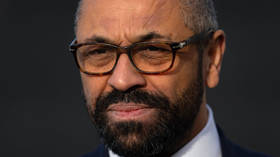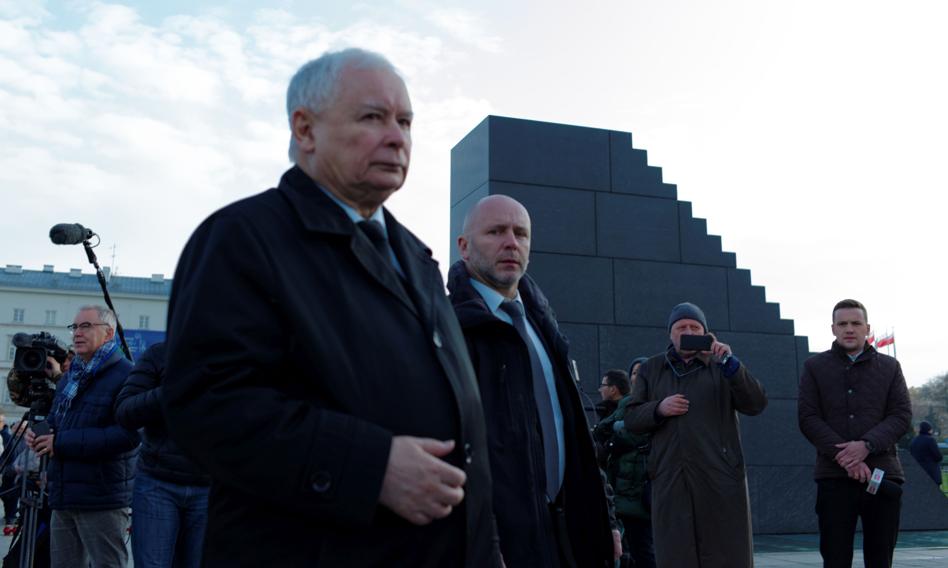Russia’s first 4th of 2024 has been a mixed bag. The economy is in a strong position, as is its war footing in Ukraine. Putin rode to triumph in the sham presidential elections without any drama. erstwhile the harsh winter yet ended, the country was shaken by the awful terrorist attack at Moscow’s Crocus City Mall.
I utilized to tutor individual at Crocus and lived just 2 metro stops away. Crocus was quiet most mornings. safety was at all entrance, as were metallic detectors. Many cleaning staff and those in the food hall were Central Asian migrant workers, all working highly hard in mediocre conditions. Customers could frequently be highly rude to them. A panic attack seemed unimaginable.
Since the holidays, I have found myself routinely wondering erstwhile normality might return. erstwhile I was reading an account of the 1991 coup by my large hero, Vladimir Pozner, I began to truly question at what minute a different future might look possible? It is hard to see what could change on the average day. People are only besides happy to keep their heads down, carry on with average life and uphold what normality remains. Change is not on people’s agenda. Instead, getting through to the summertime is more important. Any optimism for a brighter next day concerns home renovations, holidays and possibly fresh additions to one’s family.
Anyway, the optimism of the early 1990s that Pozner wrote about was fast to dissipate erstwhile the social contract was ripped up and a fresh 1 written that excluded the majority. Today, things could inactive change on a whim at any moment.
Late last year, I argued in the Moscow Times that any future for democracy in Russia will be decided by its people, not the wishful reasoning of foreigners. Indeed, the country faces many obstacles in getting there. However, as Yegor Gaidar erstwhile pointed out, large changes in Russia come later than we think but earlier than we expect. On fresh Year’s Eve 1979, fewer could have imagined perestroika as Leonid Brezhnev slurred through a lengthy and oftentimes embarrassing speech. Yet 10 years later, a minute came erstwhile a different future for the USSR looked possible. It offers lessons for today.
The Sakharov moment
At the 1989 legislature of the Communist organization a frail old man, whose name utilized to be a immense taboo, took the stage. russian citizens watched this figure openly challenge Mikhail Gorbachev and the strategy itself. It was not the content of his speech that gave hope. It was the fact that he refused to be silenced and yet could not be stopped. That man was Andrei Sakharov.
Sakharov came from the depths of the Stalinist system. He was a creature of the strategy and 1 of its biggest critics. His envisaged future was 1 where human rights, justice and dignity formed the russian system’s backbone, and yet were not antithetical to its existence. Exiled for his criticisms of the Afghan War, the changes ushered in under perestroika allowed him to return, be elected as a deputy and set up an independent political group.
For a short while in 1989, the liberal “Inter-Regional Deputies” group that Sakharov co-led had the advanced hand in russian politics. This was not just due to the fact that Gorbachev’s economical reforms were going horribly wrong. This number were more vocal than the Communist hardliners. alternatively of rushing out the back doors of meetings to avoid journalists, they embraced their questions. In those meetings and committees, they refused to be silent or rubber stamps. This fresh group embodied the spirit of perestroika, and created a sense that the russian government was no longer cloaked with mystery as they openly criticized the KGB and war in Afghanistan.
At the 1989 Congress, Sakharov gave the beginning and closing speeches. He addressed matters of integrity, honesty and the nature of the human capacity to prevail. He critiqued the USSR at length, called for the transfer of power to the Soviets, the privatization of land and re-organization of the USSR along national lines. As Sakharov dragged on, Gorbachev grew increasingly impatient. He told Sakharov repeatedly that his time was up and to return to his seat. But Sakharov continued. Gorbachev then switched off the microphone. Sakharov inactive continued, being heckled and clapped down.
The most shocking thing was that the live tv broadcast continued. It was the first time russian citizens had always seen something like that. How was it even allowed to happen? This was not your grandfather’s USSR. Sakharov showed the position quo to be failing, but he was not calling for the government’s demise. He only proposed reforms. His unwavering principles could not be slapped down. Sakharov had foregone all the privileges the strategy could offer and dared to request that it change. For that reason, he was the conscience of perestroika for many citizens.
Patience is simply a virtue
Sakharov’s minute is the perfect parallel for today’s Russian government. Decisions are made behind closed doors by mysterious figures for unclear reasons. average people have no impact or ability to influence them. The Duma does not host debates on policy or future directions. There are no rousing speeches that make the headlines or go viral. And nobody pretends otherwise.
Two notable public challenges have happened from within since the war started. The first was erstwhile the writer Marina Ovsyannikova interrupted a live broadcast with an anti-war protest sign. It shocked and awed not due to her bravery but simply due to the fact that it happened. Conventional wisdom was things like that do not and cannot happen. Yet, it gave people a glimpse behind the curtain and exposed a weak point in this impenetrable fortress. Prigozhin’s mutiny had a akin effect. How was he able to take over a military building, scope the outskirts of Moscow and so openly challenge the state?
But unlike Sakharov, Ovsyannikova and Prigozhin were silenced. Neither had built a career on rule and opposing the Kremlin. A clear moral figure within the government and opposition is besides lacking, although Boris Nadezhdin might yet have his day. Alexei Navalny was besides polarizing to be that figure.
A modern-day Sakharov minute would be profound and show that things might just be different. individual from within the system’s reformist wing, exposing it in a way that only they could, will represent the minute erstwhile a different Russia looks possible. That minute looks improbable anytime soon, however, a generational shift is well underway. Those coming of age with no memories of socialism and few, if any, of the liberal 1990s do not much care for what they decry as “zombie ideas”. They are independent of the state, outward looking and have time on their side. Any Sakharov minute will belong to them. For now, it must wait.
James C. Pearce is simply a historian and author of The usage of past in Putin’s Russia (Wilmington, DE: Vernon Press, 2020). He is presently writing a past of Russia’s Golden ringing Cities.
Please support New east Europe's crowdfunding campaign. Donate by clicking on the button below.















